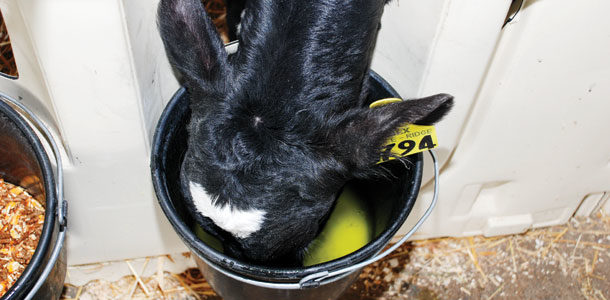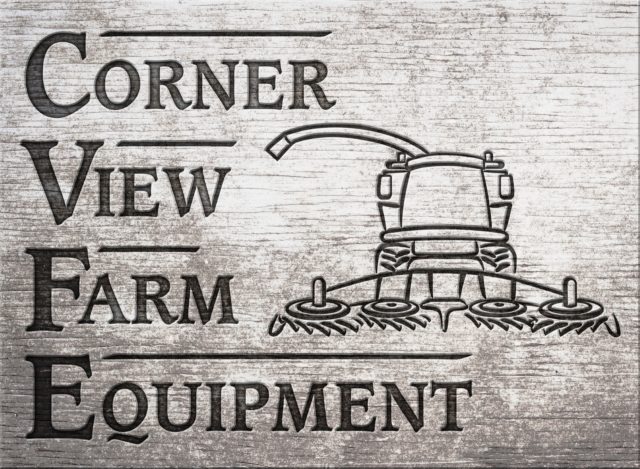Scours can occur as a result of pathogens and stressors. When calves get scours they may experience electrolyte loss, dehydration and increased risk of death due to dehydration. During these times, oral electrolyte solutions become extremely important.
A high-quality electrolyte is designed to replace lost fluids, restore the calf’s acid-base balance, and provide energy and nutrients to the calf. However, with so many commercial oral electrolyte solutions available, it can be difficult to choose the right one.
Recently, new research on oral electrolyte solutions has emerged, giving you more information toward making the right decision for your calves.
New research on alkalinizing agents
It is essential that oral electrolyte solutions contain an alkalinizing agent to correct acidosis caused by the acid-base imbalance that occurs during scours. Products containing bicarbonate have been used effectively for this purpose for years.
However, new research by Dr. Geof Smith at North Carolina State University shows that electrolyte products containing acetate or propionate as the alkalinizing agent have advantages over bicarbonate.
According to the research, oral electrolyte solutions containing bicarbonate can potentially raise the pH in the abomasum above 5.5 for a prolonged time period.
Raised pH levels promote the growth of salmonella and other bacteria, and may actually worsen scours. In the study, the increase in abomasal pH was lessened when acetate-based or propionate-based oral electrolyte solutions were used.
Acetate and propionate have other benefits too. These volatile fatty acids produce energy when metabolized and promote sodium and water absorption in the calf’s intestine. Bicarbonate does not do this.
Commercial products containing acetate and propionate are available in Europe but are beginning to emerge here in the U.S.
Use electrolytes wisely
There are many electrolytes on the market, so it can be difficult to choose the right one for your calf-feeding program. Look for a product that provides these key ingredients:
• Sodium and potassium to replace these key electrolytes that are lost
• Glucose and glycine (an amino acid) to provide energy and promote absorption of sodium and water from the intestine
• Alkalinizing agents (acetate, propionate or bicarbonate) to correct acidosis
Oral electrolytes that contain dietary fiber (in the form of psyllium) are not recommended. These products may “gel” or thicken the calf’s manure, making it appear as if the diarrhea is resolving. However, research has shown that the addition of fiber actually causes less glucose absorption, which actually reduces the calf’s energy level and can cause prolonged scouring.
During electrolyte use, you should keep feeding milk or milk replacer to provide the fluids and nutrients found in the calf’s normal diet. However, electrolytes and milk or milk replacer should not be fed jointly. Instead, it’s best to add an oral electrolyte solution as an extra meal in between milk or milk replacer feedings.
For example, if you feed milk twice a day, administer an oral electrolyte in the middle of the day and late at night. Remember, there is no proven benefit to withholding milk or milk replacer – it only worsens the calf’s negative energy balance.
In addition, be sure to provide free-choice, low-sodium water at all times. And as always, work closely with your calf specialist or veterinarian to select the product most appropriate for the situation you are facing.
It’s also important to know when other intervention is needed. Consult your herd veterinarian for calves that cannot stand or lift their heads, as they may need intravenous fluids instead.
Warm-weather electrolyte use
Sometimes it is necessary to deliver electrolytes to alleviate the effects of hot weather on calves. In these situations, feed the electrolyte solution during every other water feeding or offer it free-choice along with water. However, if the calves are healthy (not scouring), offer the electrolytes as a dilute solution or sodium toxicity could result.
Electrolytes not only address dehydration caused by heat stress, but they also can be useful for combating dehydration that might occur during other stressful times, such as transport, weaning and pen moves.
The quality of commercial oral electrolyte solutions can vary greatly. When choosing any product, remember that it must satisfy the calf’s need for sodium and potassium to replace what is lost, as well as provide agents that promote sodium and water absorption from the intestine such as glycine.
And now, thanks to new research, you have more information on alkalinizing agents and which ones are most effective in correcting acidosis during scours. PD
For more information, contact Dr. Tom Earleywine at (800) 618-6455.
References omitted due to space but are available upon request. Click here to email an editor.
PHOTO
Electrolytes not only address dehydration caused by heat stress, but they also can be useful for combating dehydration that might occur during other stressful times, such as transport, weaning and pen moves. Photo provided courtesy of Land O’Lakes Animal Milk Products.

Tom Earleywine
Director of Nutritional Services
Land O’Lakes Animal Milk Products






